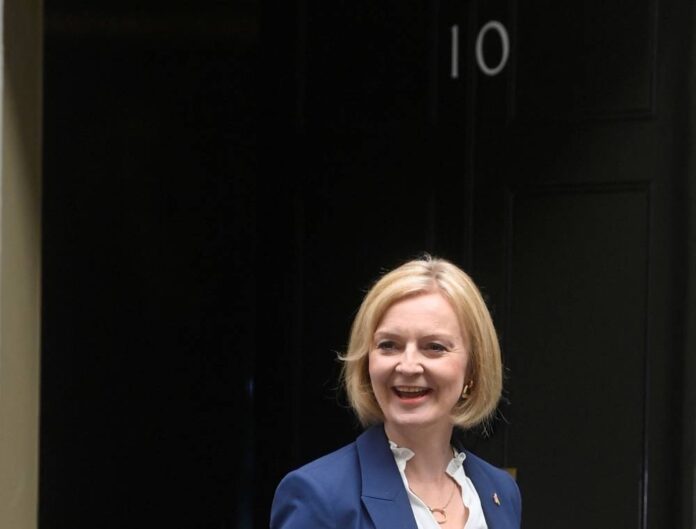New British Prime Minister Liz Truss walks outside Number 10 Downing Street, in London, Britain September 7, 2022. – Reuters pic
Follow us on Instagram, subscribe to our Telegram channel and browser alerts for the latest news you need to know.
LONDON, Sept 8 – Britain’s new Prime Minister Liz Truss will today scrap the country’s fracking ban and will seek to make more use of North Sea reserves, the Telegraph newspaper reported.
The reported moves are part of what her office said will be a “bold plan of action” to support households and businesses with soaring energy bills while also seeking to boost domestic energy supply.
Fracking, which involves extracting shale gas from rocks by breaking them up with water and chemicals at high pressure, was banned in 2019 after the country’s oil and gas authority said it was not possible to predict the magnitude of earthquakes it might trigger.
Truss, appointed prime minister on Tuesday, has promised immediate action to address one of the most daunting sets of challenges for an incoming leader in post-war history, including soaring energy bills, a looming recession, and industrial strife.
Her office said she would set out a plan to parliament today which would involve both short- and long-term solutions to the energy crisis, but did not give any details of her plans.
A source familiar with the situation told Reuters that Truss was considering freezing energy bills in a plan that could cost towards ?100 billion (RM518 billion), surpassing the Covid-19 furlough scheme.
“We will take action immediately to help people and businesses with bills but also take decisive action to tackle the root cause of these problems, so that we are not in this position again,” Truss said in a statement.
“We will set out our plans to deliver on that promise and build a prosperous Britain for everyone.” She also said Britain needed to boost its long-term energy security and supply.
During the leadership election campaign, Truss said she favoured tax cuts over providing direct support to households facing unprecedented rises in energy bills.
Energy suppliers and the opposition Labour Party have called for a freeze on gas and electricity bills. The average bill is due to jump to ?3,549 a year next month, and further major hikes are forecast next year.
On Wednesday, new finance minister Kwasi Kwarteng told bankers and investors the government would need to borrow more than planned to support households and businesses through the energy crisis. – Reuters


